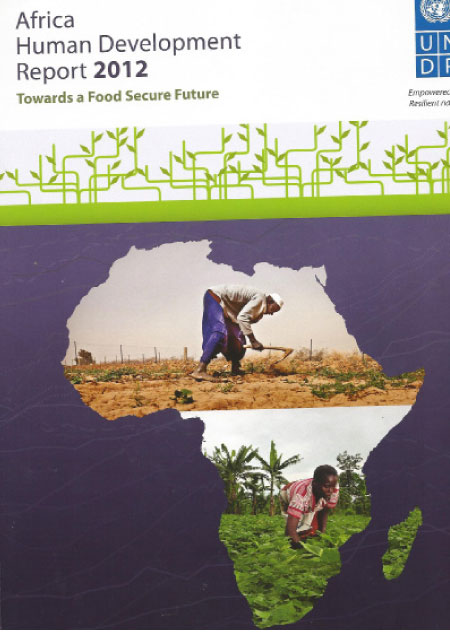
Vice-President Isatou Njie Saidy on Tuesday officially launched the Africa Human Development Report 2012 at the Kairaba Beach Hotel.
The report, the first of its kind to be authored by the UNDP, centred on the continent’s food security.
In her launching statement, Vice-President Njie-Saidy said the launching of the report marked another milestone in humanity’s common quest for ensuring food self-sufficiency for all in the planet and Africa in particular.
According to her, the identification of the topic, ‘Toward a food secure future,’ and the main theme of the 2012 Africa Human development report by UNDP, is not only timely but relevant to the current plight of many Africans, particularly in view of the food situation in the continent.
She recalled that at the 1996 World Food Summit, the world set target to halve the number of undernourished people by 2015.
“In the developing countries alone there were 824 million people as of 1990 but surprisingly the number of undernourished climbed up to 925 million people, 13.6 per cent in 2010. Reversal in the results had been due to three factors: 1) neglect of agriculture relevant to very poor people by governments and international agencies; 2) the current worldwide economic crisis, and 3) the significant increase of food prices in the last years, which has been devastating to those with only a few dollars a day to spend.”
According to the vice president, the global demand for food will in the coming decades double through population growth and rising levels of consumption.
“Ensuring the planet produces enough food for all in a sustainable way will be a real challenge,” she said, adding that the biggest and greatest evil to humanity is lack of food, particularly in this modern age of high technology, knowledge and globalized world.
Food security is therefore crucial to help the poorest countries help themselves out of poverty, she noted.
“Poverty is the principal cause of hunger, and as of 2008, the World Bank has estimated that there were an estimated 1,345 million poor people in developing countries who live on 1.25 dollar a day or less,” the vice president said.
According to her, the report provides an overview on the food situation in Africa and focuses on four critical interrelated actions, such as bolstering food production, effective nutrition policies, and building resilient communities and households as well as empowering the rural poor, especially the women.
For her part, Ms Victoria Ginja, WFP resident representative to The Gambia, who deputised for the UNDP Resident Coordinator to The Gambia, says food security is a life-time challenge for nations.
She said: “On the 5th of May 2012 the UNDP Administrator Helen Clark launched Africa’s first Regional Human Development report in Nairobi, Kenya. Today we are honoured to have you here to support as we celebrate another milestone: the launching of the report here in The Gambia.”
According to her, people are considered food secure when they have at all time, access to sufficient, safe, nutritious food to maintain a healthy and active life.
She noted that to boost food security, the report argues for action in our interrelated areas, agricultural productivity, nutrition, access to food, and empowerment of the rural poor.
The WFP local boss also said increasing agricultural productivity in sustainable ways can bolster food production and economic opportunities, thereby improving food availability and increasing purchasing power.


